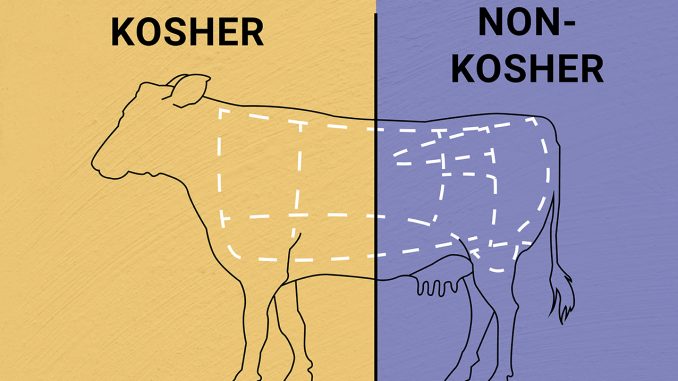
For some Jewish students keeping kosher on campus, options can be limited.
Temple University offers kosher options, mainly through Zaydees, an on-campus kosher restaurant at Hillel at Temple University on 15th and Norris streets. To follow religious guidelines, students may need to cook and eat from home or eat vegetarian.
Jewish students account for 5 percent of the undergraduate population, and 17 percent of graduate students are Jewish, according to self-reported statistics from Temple’s Hillel chapter to the international organization.
Kashrut is the body of Jewish law outlining what foods can and can’t be eaten and preparation standards, and kosher food meets kashrut stipulations.

Keeping kosher on campus is difficult, said Ellen Taraskiewicz, a junior history major who recently converted to Judaism. Taraskiewicz is a commuter and said she packs her lunches from home because Zaydees is too far away from her classes.
“I can’t really observe kosher on campus as well as I would like to unless I bring my own food,” Taraskiewicz said.
Today, kosher is practiced as the separation of milk and meat, said Rabbi Daniel Levitt, the executive director of Hillel at Temple. It also includes keeping a kosher kitchen, which means that the utensils and appliances can only cook kosher food and not be mixed with non-kosher food. The Bible lists specific animals, like pork and shrimp, Jewish people should not eat, Levitt added.
“The Bible basically says do not cook a kid, a baby calf, in his mother’s milk,” Levitt said. “You are what you eat, so there is a mindfulness when it comes to your identity when you make choices around it.”
Vegan or vegetarian diets reduce the chances of combining meat and dairy while eating meals. A vegan or vegetarian diet, however, may not fit into certain students’ lifestyles and does not ensure that plates and silverware are kosher.
Kosher foods are labeled as either meat, dairy or pareve, which is the distinction for foods like vegetables and pasta. But if processed on meat or dairy equipment, pareve foods can lose their status, according to The OK Kosher Certification, an independent kosher services agency based in New York. This means vegan and vegetarian food cannot be guaranteed as kosher unless prepared and processed, according to kashrut.
When cleaned in a certain way, non-kosher kitchenware can be made kosher again. One of these processes is called hag’alah and involves boiling water and submerging silverware in it. Different rabbis may have different standards for this, according to nonprofit media organization My Jewish Learning.
Susan Becker, the director of Jewish life at Hillel at Temple, said while some sects of Judaism consider keeping kosher a requirement in the Jewish faith, Hillel is flexible.
“At Hillel, we are open to multiple ways of being Jewish,” Becker said. “You certainly don’t have to keep kosher to be Jewish.”



Be the first to comment